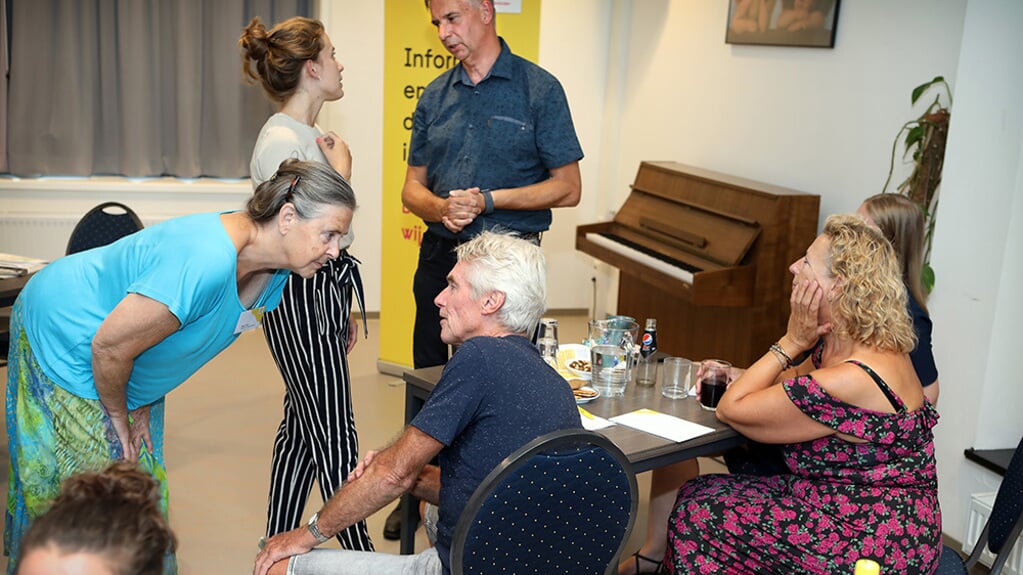My ad
general
Read 102 times
Did you know that one in five people develops dementia? For women, the percentage is one in three. Age also plays a role. Up to 40 percent of people over the age of 90 have some form of dementia. But more and more young people are also being diagnosed. In the Netherlands there are currently 290,000 people suffering from dementia. This is a number that will double by 2040 due to the aging population and the fact that we are getting older.
Jos van Leeuwen and Marjolein Knaap are volunteer members of the Board of Directors of the Dutch Alzheimer's Department in Central Holland. As Chairman and Secretary of the Board, they and their fellow Board members are committed to highlighting dementia and Alzheimer's disease in the municipalities of Zuidplaas, Wadenkisveen, Budegraven-Riewijk, Gouda and Krempnerwaard. This includes providing training and information about dementia, supporting municipalities to become dementia friendly and organizing Alzheimer's Cafés where you can receive information and meet fellow sufferers and their informal carers. This year, in addition to the Alzheimer's Cafés in Bodegrafen, Gouda and Rijwijk, Alzheimer's Cafés will also be organized in Zuidplas, Wadenkisveen and Krempnerwoard.
“We note that it is still necessary to draw attention to dementia and Alzheimer's disease,” says van Leeuwen. “Many people think that a person diagnosed will be admitted to a nursing home, when in fact 79 percent of those people simply live at home.” This is a number that will increase further in the coming years. “We have a lot ahead of us, and if we don't do anything, health care will explode. We have to deal with this together as a community, and find a way to deal with it.”
This can be done with small things. “By being a cycling or walking buddy, or by consciously involving someone in the choir who is a bit confused.” “Working with the municipality and the (health and social care) partners,” Knaab adds, “we want these people to participate ‘naturally’ in society for as long as possible. By continuing to involve them in everything – especially in the initial phase – these people remain active and delay The consequences of the disease process as much as possible.
Alzheimer's cafés are meeting places where people can go once a month. The first half of the evening usually consists of information and exercises on a particular topic. During the second part of the meeting there is room to talk with fellow sufferers and other informal carers. There is a great need for this. “You often notice that a lot is happening behind the front door,” van Leeuwen and Knapp know from experience. “The environment often notices that something is going on, but how do you convince someone to see a doctor if they are in denial about everything, and how do you approach behavioral change? These are all issues that can be discussed during Alzheimer's Cafés. It often takes a long time before a diagnosis is made and a case manager is appointed.” .
There is still a lot that is possible, especially during this start-up period. “We have also recently launched a ‘Memorable Cooking Club’ in the area. Here, people with dementia and informal carers cook and eat food together. Elsewhere in the country there are music and dance clubs or people can do supervised gardening. It will be something It would be great if we could find volunteers who would also like to create this in our area so you don't necessarily have to have healthcare experience!
If you would also like to visit one of our memorable Alzheimer's Cafés or Cooking Clubs or if you have ideas for contributing as a volunteer, please visit: https://www.alzheimer-nederland.nl/regios/midden-holland/over-ons

“Total coffee specialist. Hardcore reader. Incurable music scholar. Web guru. Freelance troublemaker. Problem solver. Travel trailblazer.”







More Stories
GALA lacks a chapter on e-health
Weird beer can taste really good.
Planets contain much more water than previously thought